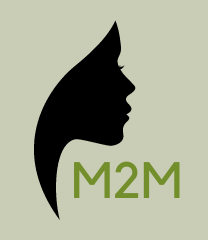The Legacy of Intersecting Barriers
The centennial anniversary of the 19th Amendment’s ratification serves as a sobering reminder of the protracted struggle for voting rights in America, a struggle still unfinished for marginalized groups. Despite constitutional amendments theoretically guaranteeing universal suffrage regardless of race or gender, Black women in reality did not secure full enfranchisement until 1965 due to the intersecting barriers of racism and sexism. These barriers also manifest in religious spaces, limiting Black women’s opportunities in theological scholarship and leadership (Douglas, 2022).
Analyzing Representation in Religious Academia
While more Black women are earning advanced theology degrees today, they remain severely underrepresented as religious studies faculty and leaders. Despite comprising over 7% of the U.S. population, estimates suggest Black women make up only around 3% of seminary professors and department chairs in faith-based institutions (Perkins, 2016). Understanding the concrete barriers facing Black women religious scholars requires examining how racism and sexism disadvantage them across occupational contexts.
Barriers to Appointments and Tenure
Like the corporate world, theological academia often advances faculty based on existing social ties, with senior scholars mentoring and advocating for those of similar identities (Stahl et al., 2021). White male gatekeepers rarely sponsor Black women for prestigious fellowships, visiting lectureships, or journal editing positions. During hiring, subtle biases manifest in doubting the competence of candidates of color (Fields et al., 2012). Once appointed, denial of tenure often relates more to race or gender perceptions than actual scholarly output, which research shows is often prolific among Black faculty despite their marginalization.
Teaching Unsung Perspectives
For Black women scholars like Womanist theologian Dr. Karen Baker-Fletcher, activism and justice-oriented scholarship are inextricably intertwined. She notes, “My choice to focus on African American women writers in my teaching and writing was and is political and pedagogical. I teach and write about those voices and perspectives that are so often unsung” (Baker-Fletcher, 2009). Yet students still routinely challenge or minimize the expertise of Black women faculty, reflecting broader societal biases (Hartlep et al., 2022).
Cultivating Counterspaces
Due to marginalization, Black seminary professors report needing to create affirming “counterspaces” to sustain themselves spiritually and cope with racism and sexism (Stahl et al., 2021). Forming community with other minority peer mentors provides crucial support. This enables navigating external barriers while advancing inclusive cultural change within religious institutions. As Dr. Blessing Osakwe reflects, “We lean on our circle…That way, I’m pouring into you, you’re pouring into me, and we can keep going” (Gonzalez, 2021). Building solidarity empowers their scholarship and leadership to continue disrupting oppressive theological norms.
Strategies for Reform
Clearly, faith institutions wishing to diversify leadership and amplify marginalized voices must address systemic inequities through antiracism and allyship training, diversity officers, and data tracking (Douglas, 202). But lasting equity depends upon earnestly confronting biases while uplifting prophetic voices that prod our consciences toward justice (Westfield, 2021). The future of theological vitality resides with the Violet Fishers, Karen Baker-Fletchers, Blessing Osakwes – with those persisting amid barriers because “the Spirit of the Lord is upon [them]” (Luke 4:18). Will we make room or continue confining them to margins? The choice is ours.
References:
Douglas, K. (2022). Black women, God talk, and Clergyhood. Wipf & Stock.
Stahl et al. (2021). “Staying fed”: Black women faculty counterspaces. The Review of Higher Education, 45(1), 103-133.
Baker-Fletcher (2009). Dancing with God: The Trinity from a Womanist perspective. Chalice Press.
Hartlep et al. (2022). “You know my track record, right?”: Presumed incompetent to proven intellectual. Journal of Race, Ethnicity, and Politics, 1-31.


